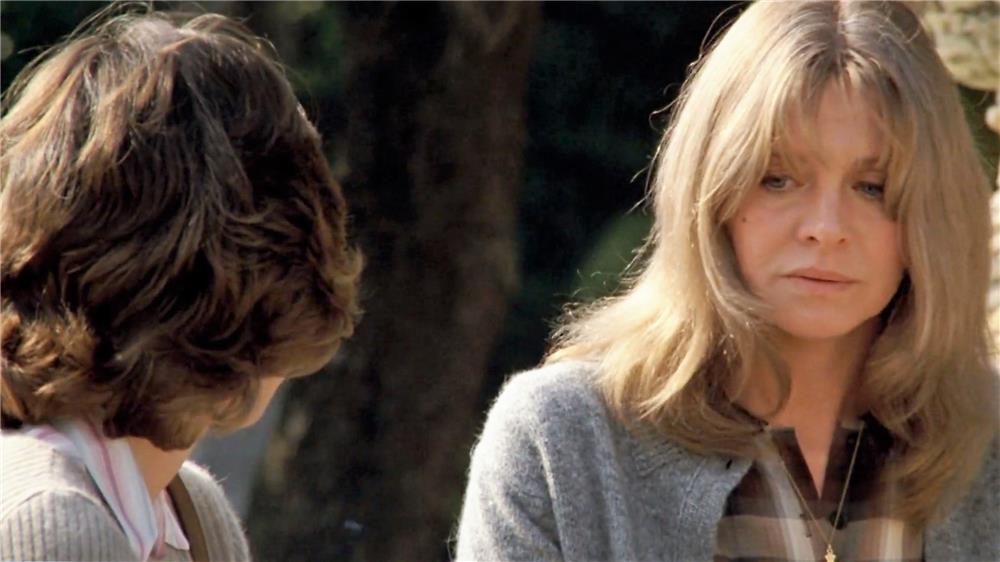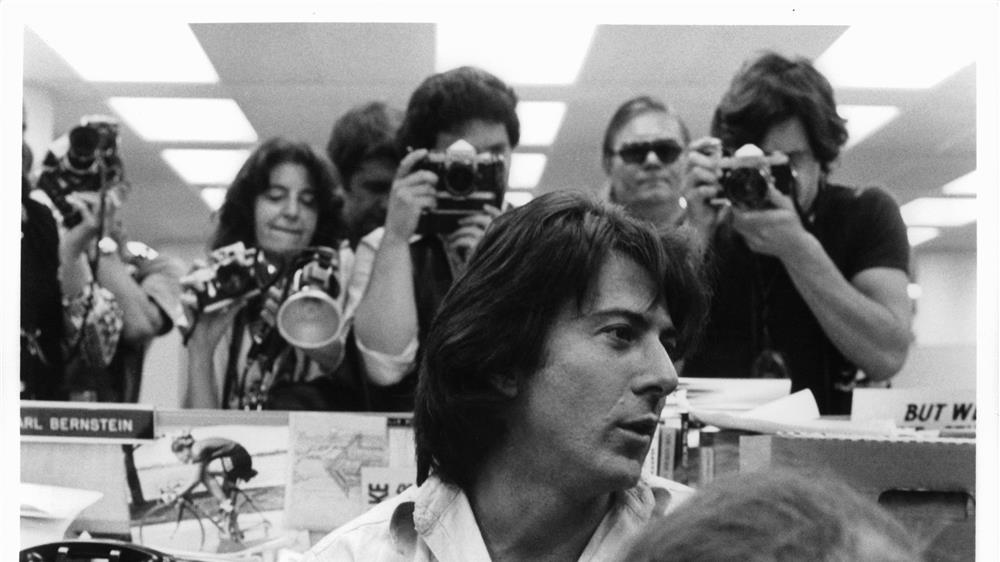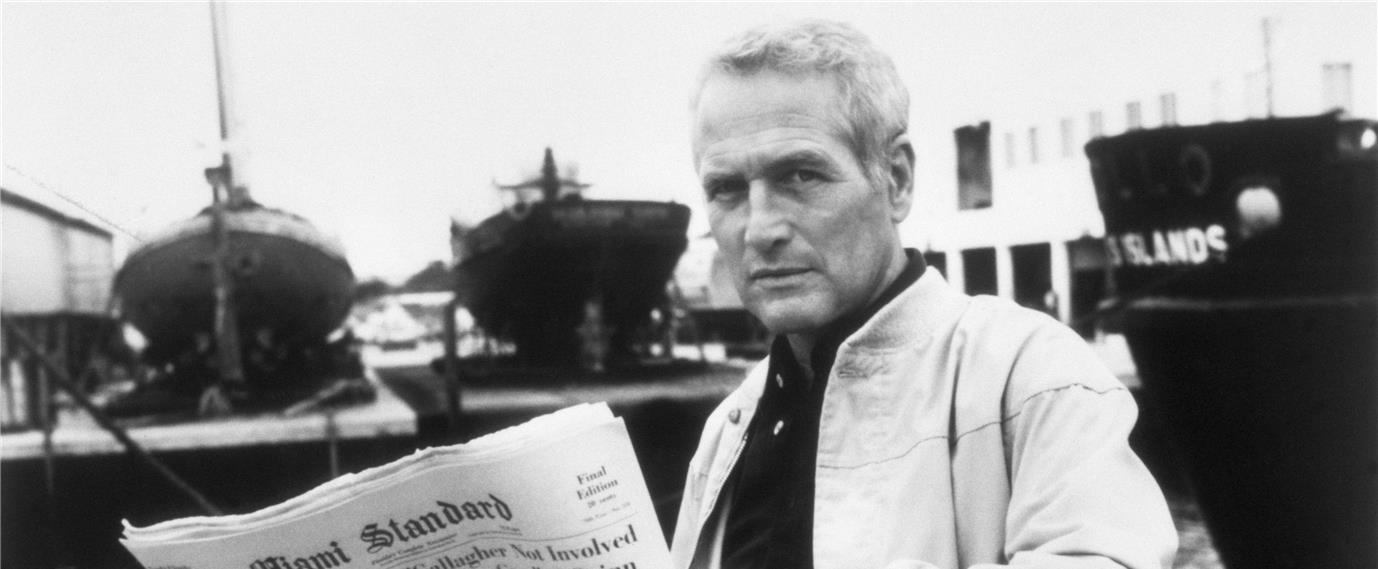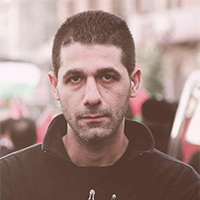يضع فيلم "غياب الحقد" مهنة الصحافة أمام محكمة أخلاقية بعد ست سنوات من ظهور فيلم "كل رجال الرئيس" الذي يمجّد الدور المهني للصحفيين.
تبدأ قصة الفيلم الدرامي على طريقة المخرج سيدني بولاك المشوّقة؛ من المكتب الصحفي وأوراق الجرائد، وأصوات الآلة الكاتبة، وتنتقل مباشرة إلى الميناء، حيث "غالاغير" وهو مستورد مشهور للخمور يتفاجأ بنشر اسمه على الصفحة الأولى بصفته المشتبه به الأهم في قضية اختفاء الرجل النقابي "جوزيف دياز".
كانت القصة الخبرية موقعة باسم الصحفية المتحمسة ميغان كارتر التي نكتشف فيما بعد حماسها الصحفي، وفقدانها لحس المسؤولية. وقد سرّب إليها الخبر محققون اتحاديون حاولوا استهداف غالاغير، بناءً على ثلاثة احتمالات وضعوها حوله: إما أنه الفاعل، أو يعرف من الفاعل، أو يستطيع أن يكتشف الفاعل.
مع صدور الطبعة، تنقلب حياة غالاغير على المستويين العملي والشخصي، فالنقابة أصدرت الأوامر لعمّاله بعدم مواصلة العمل لحسابه. أما صديقته تيريزا بيرون -الوحيدة التي تمتلك دليل براءته لأن غالاغير كان برفقتها لمدة أسبوع أثناء إجرائها عملية إجهاض في أتلانتا، وهي الفترة التي تعرّض فيها "دياز" للاختفاء- فتحاول إنقاذ صديقها بالتواصل مع الصحفية ميغان كارتر، وتطلعها على تلك المعلومة بعد أن ترجوها عدم نشر القصة لأنها (بيرون) كاثوليكية (مذهب يحرم الجنس قبل الزواج ويحرم الإجهاض).
ولكن في اليوم التالي، تستلم بيرون -المنهارة تماماً أمام منزل صديقها- الجريدة، وتقرأ قصة إجهاضها على الصفحة الأولى، فتبدأ الركض إلى باحة الجيران حتى تتوارى وراء الأشجار وتنتحر هناك.
الحقيقة المؤذية
كانت ميغان تعوّل بنشرها قصة الإجهاض على إنقاذ غالاغير وإصلاح الضرر الذي أصابه جراء قصتها الأولى، إلا أنها مع إبلاغها بحادثة انتحار بيرون دخلت في نوبة من الندم وتأنيب الضمير. ولكن من جهة أخرى براغماتية، آمنت ميغان بنشر ما تعتقد أنه حقيقة للجمهور، دون النظر إلى كونها مؤذية لبيرون بعدما أسرّت لها الأخيرة قصتها كأنها "تتحدث إلى صديقة".
وبما يتنافى مع الواجب الأخلاقي للمهنة عندما يتعلق الأمر بإيذاء الناس وإفشاء أسرارهم، نشرت ميغان الحقيقة ووضعت بيرون في مكان الشاهد، وهو ما حدث سواءً في نشرها للقصة المسربة التي أضرت بغالاغير، أو الثانية التي أدت إلى انتحار بيرون. وعلى الرغم من أن القصتين كانتا حقيقيتين من وجهة نظرها فإنهما ضارّتان، وهو ما يحتاج إلى إعادة تعريف مفهوم "الحقيقة" بمعناها الكلي، وتجريدها من الاعتقادات الشخصية، أو التسريبات الشفوية غير المدعومة بالأدلة المادية.
وعلى النقيض من براغماتية ميغان المؤذية، فإنّ مايك غالاغير الذي كانت شهادة صديقته بيرون لوحدها كافية لرفع الشبهة عنه، أصرّ على عدم إقحامها في مشاكله لاعتبارات أخلاقية وإنسانية تمس بيرون وسمعة عائلتها الكاثوليكية المتدينة، رغم أن إشهار تلك الحقيقة كان مصيريا بالنسبة له.
عندما يملك المتهم عقلية الصحفي
مبادئ العمل الصحفي المبنية على المسؤولية والدقة والاستقلالية، والعمل لصالح الجمهور حتى لو كان ضد رغبة السلطات، والمحافظة على حقوق الآخرين، امتلكها في فيلم "غياب الحقد" الممثل بول نيومان الذي تألّق بأفضل أدواره، تاجر الخمور غالاغير المشتبه به الأهم، الذي أُقحم اسمه في خبر بناءً على احتمالات هدفها التشهير والابتزاز والضغط، إذ نشرت الصحفية تسريبات غير موثوقة ودون مقابلته قبل نشر الخبر.
تأثّر غالاغير لكمّ التشويه الذي طال سمعته، وتواصل مع ميغان غير مرّة لمعرفة "مصادرها المطلعة" التي أدارت الحملة ضده. حاولت ميغان أن تمنحه تعويضا هشّاً؛ إذا ما ثبتت براءته بأن تنشر الخبر على الصفحة الأولى، حينها قال "عندما تتهمين شخصاً يصدّقك الجميع، وعندما تعلنين براءته لا أحد يبالي". وبتنصّل كاملٍ من المسؤولية أجابته: "ذلك خطأ القرّاء وليس خطأ الصحيفة"!
بعد انتحار بيرون، وفي حالة ضعف وتأنيب ضمير، اعترفت له ميغان بأن المحقق الاتحادي دوزن هو من سرّب إليها الخبر.. أمسك غالاغير بذلك الخيط ورسم سيناريو متماسكا لإظهار الحقيقة، فعقد صفقة مغرية مع "كوين" المدعي العام للمقاطعة؛ بأن يعلن الأخير براءته في مؤتمر صحفي عام مقابل أن يساعده غالاغير في قضية اختفاء دياز.

يستطيع غالاغير بذكاء التاجر أن يورط جميع الأطراف الرسمية التي عملت ضده، وعن قصد وضع المدعي العام كوين في موضع شبهة أخذ الرشوة منه، ليعمل بعدها مكتب التحقيقات الاتحادي على تسريب قصة ثانية إلى ميغان، وفحواها شكوك بتلقي المدعي العام رشوة مالية من غالاغير، لتنشرها هي كالعادة كاحتمال آخر غير موثوق، وهي القصة الثالثة المتناقضة التي تنشرها، مما يدلل على تخبطها وعدم امتلاكها سيناريو مكتملا تجاه الحدث الذي تعالجه، فقد نشرت أولاً ما يُدين غالاغير، ثم نشرت ما يبرئه، وأخيرا تنشر ما يدينه ويدين المدعي العام، قبل استدعائها إلى جلسة أخلاقية.
الدور السلبي للصحفي
من بين جميع الأطراف المستدعين للجلسة، كانت ميغان الوحيدة التي حضرت برفقة محام، بصفتها طرفًا سلبيا غير حيادي في المشكلة، إلا أن ذلك لم يحل دون قرار منعها من مزاولة المهنة، وبراءة غالاغير، واتهام المحقق روزن بتلفيق القضايا وتسريب المعلومات لمصالح شخصية. غير أن الدرس الأخلاقي الذي تلقته ميغان متأخرا من مساعد المدعي العام، يعتبر الركن الأهم في المجال الصحفي: "لا نستطيع أن نملي عليكم ما تكتبونه وما لا تكتبونه، ولكننا نأمل أن تتصرف الصحافة بمسؤولية. ولكن عندما لا تفعلون ذلك فلا يوجد لدينا خيارات كثيرة".
الممثلة سالي فيلد التي أدت دور الصحفية ميغان كارتر، كتب عنها الناقد السينمائي روجر إيبرت بعدما أظهر إعجابه بالفيلم ومشاكله الاجتماعية والواقعية: "لا يوجد صحفي محترم من شأنه أن يفعل ما فعلته ميغان بحق غالاغير في هذا الفيلم.. إنها عار على مهنتها"، حيث تسببت في انتحار امرأة بريئة بعدما نشرت خبرا خاصا لم تأخذ التفويض بنشره، بل وفقدت استقلاليتها بعدما جرى استغلالها غير مرّة من قبل المحققين، منتهزين جريها وراء السبق الصحفي، واستخدموها كناقل "لأوهامهم الشخصية" كما وصفهم مساعد المدعي العام المنتدب من قبل وزارة العدل، دون أن توثّق مصادرها وتتأكد من عدم كونهم طرفًا في قصة مصطنعة.
يمكن مقاربة الخطأ غير المهني الذي وقعت فيه مع ما يتم تداوله الآن -بعد 36 عامًا من إصدار الفيلم- على فضائيات إقليمية وعالمية تتعامل بالتسريبات، وتبث مشاهد من ساحات الصراع، دون الأخذ بعين الاعتبار احتمال أن تكون تلك التسريبات قد "صُنعت" بالفعل لخدمة أحد أطراف النزاع. ويكتفي المذيع بعد بث التسريب بالقول: "هذا.. ولم يتسنَّ (للقناة) التحقق من صدقية الفيديو"!
ومن المفارقة أن غالاغير تاجر الخمور كان هو من نبَّهَ الصحفية ميغان لتلك السقطة المهنية في أول مشاهد الفيلم المنتج عام 1981، لمّا سألها: لماذا لم تحاول التحدّث معه قبل نشر الخبر؟ فأجابته بسلبية: "حاولت الاتصال بك ولم أتلق ردًا".. و"هل هذا يكفي؟ كان عليكِ الاتصال مجددًا".. قال الضحية غالاغير.
الفيلم الحائز على جائزة الشرف في مهرجان برلين السينمائي، أظهر مدى ثقة الصحفية ميغان بالأخبار المثيرة والخارجة عن المألوف لدعم ما تعتقد أنه حقيقة، عندما لقّنت إحدى زميلاتها مقولة جاهزة: "إذا خرجت الأسماك من الماء وهاجمت رجال الشرطة نسميها أسماك قرش، أما إذا كانت تسبح نسميها أسماكا فحسب"، متجاوزة دور الصحفي نفسه بالغوص تحت الماء لمعرفة كنه الأسماك، وتوصيفها وتسميتها دون الحاجة إلى وقوع حادثة الهجوم أو الافتراس، وهو ما اصطلح على تسميته في الصحافة الورقية "بالصحافة الصفراء"، وإلكترونيا بصحافة النقر على الطعم (click bait)، بما يشبه القاعدة القديمة "إذا عض الكلب رجلا فهذا ليس خبرا، أمّا إذا عض الرجلُ كلبا فهذا هو الخبر". وهكذا تعاملت ميغان مع قصصها الثلاث، وقضية الإجهاض بالذات، لمّا قيّمت أهمية الخبر بمدى غرابته وخروجه عن المألوف، كأن الحقيقة لا يمكن دعمها إلا بواسطة "الشو" الإعلامي!
"غياب الحقد" لا ينفي الدور البطولي للصحفيين في فيلم "كل رجال الرئيس"، بل يورد ما يعزز ذلك الدور. وقد تلقّى الفيلم ردود فعل إيجابية في الغالب، لمعالجته المشاكل المهنية والأخلاقية لمهنة الصحافة، حيث إن كاتب السناريو المحرر الصحفي ديفد رفاييل سلّط الضوء من منطلق خبرته العملية، على أهم أخلاقيات المهنة. كما ترشَّحَ الفيلم لثلاث جوائز أكاديمية: أفضل ممثل رئيسي (نيومان)، وأفضل ممثلة مساندة، وأفضل كتابة سيناريو.









































